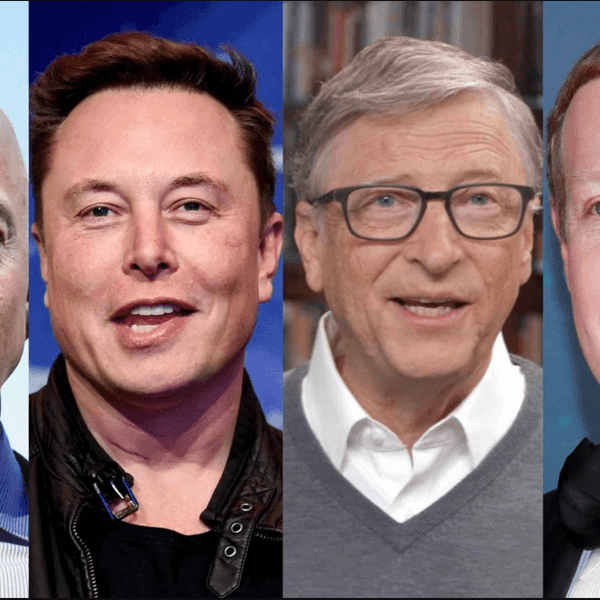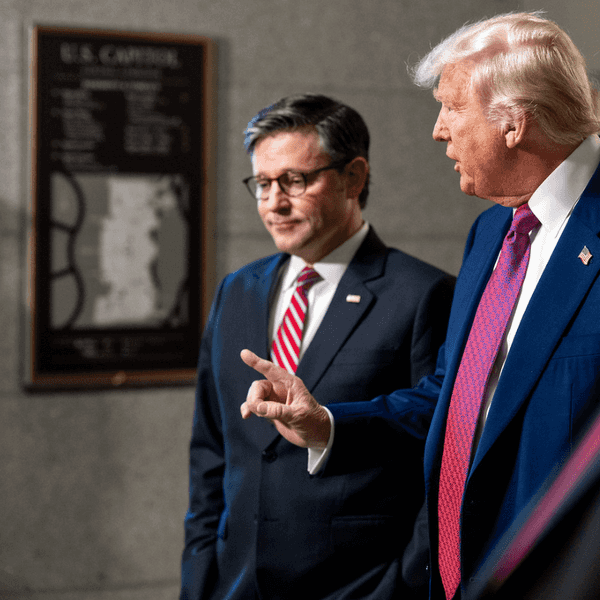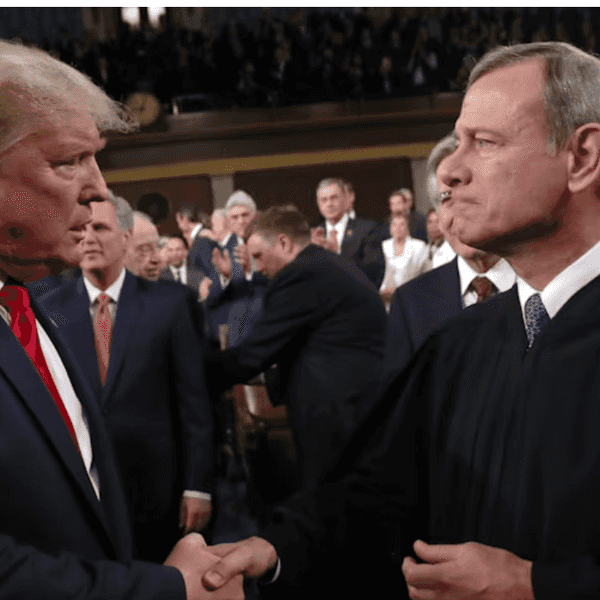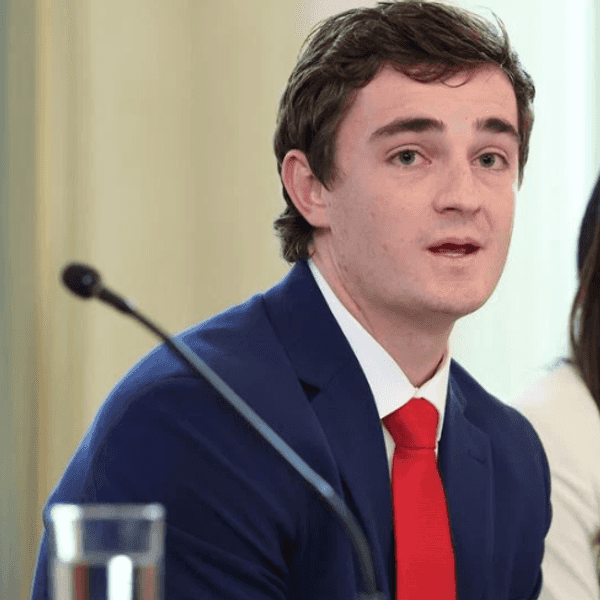Postmaster DeJoy’s Revealing Reaction To Explosive Allegations Against Him
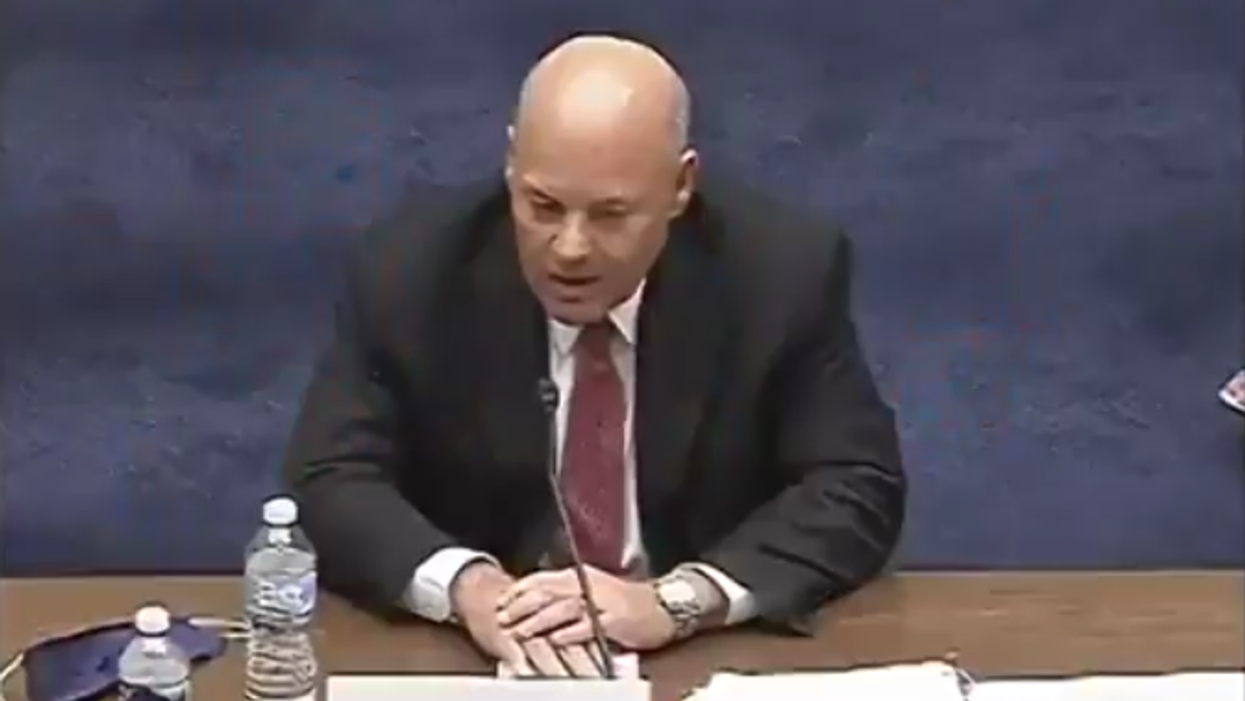
Postmaster General Louis DeJoy
Reprinted with permission from Alternet
Most years, the vast majority of Americans — and probably even political reporters — would be unable to name the postmaster general. But in 2020, Louis DeJoy has become a household name for overseeing a dramatic decline in the U.S. Postal Service's performance, the result of policies that many fear may intentionally or unintentionally interfere with the processing of mail-in ballots during the November election.
With DeJoy already in the spotlight, a new report from the Washington Post about the longtime Republcian donor's shady fundraising schemes on Sunday has further sullied his reputation. But it's not just his public standing under threat — the allegations suggest he maybe be vulnerable criminal charges for a vast election finance crime.
The Post explained:
Five people who worked for DeJoy's former business, New Breed Logistics, say they were urged by DeJoy's aides or by the chief executive himself to write checks and attend fundraisers at his 15,000-square-foot gated mansion beside a Greensboro, N.C., country club. There, events for Republicans running for the White House and Congress routinely fetched $100,000 or more apiece.
Two other employees familiar with New Breed's financial and payroll systems said DeJoy would instruct that bonus payments to staffers be boosted to help defray the cost of their contributions, an arrangement that would be unlawful.
The report got one source — DeJoy's former human resources director David Young — to confirm the scheme on the record.
"Louis was a national fundraiser for the Republican Party. He asked employees for money. We gave him the money, and then he reciprocated by giving us big bonuses," he told the Post. "When we got our bonuses, let's just say they were bigger, they exceeded expectations — and that covered the tax and everything else."
Others confirmed the details anonymously to the outlet, which the reporting backed up with records:
A Washington Post analysis of federal and state campaign finance records found a pattern of extensive donations by New Breed employees to Republican candidates, with the same amount often given by multiple people on the same day. Between 2000 and 2014, 124 individuals who worked for the company together gave more than $1 million to federal and state GOP candidates. Many had not previously made political donations, and have not made any since leaving the company, public records show. During the same period, nine employees gave a combined $700 to Democrats.
The New York Times matched this reporting, finding similarly:
A review of campaign finance records shows that over a dozen management-level employees at New Breed would routinely donate to the same candidate on the same day, often writing checks for an identical amount of money. One day in October 2014, for example, 20 midlevel and senior officials at the company donated a total of $37,600 to the campaign of Senator Thom Tillis, Republican of North Carolina, who was running to unseat a Democratic incumbent. Each official wrote a check for either $2,600, the maximum allowable donation, or $1,000.
Similar patterns of donations — including to the Republican National Committee and every Republican presidential nominee from President George W. Bush to Mitt Romney — stretch back to 2003, campaign finance records show.
This all looks quite bad for DeJoy. The clear implication of all this reporting is that DeJoy may have been running a criminal straw donor scheme, in which he essentially used company employees to donate to political candidates and circumvent diclosure laws and contribution limits. This isn't some rarefied law or obscure statute — these schemes are prosecuted regularly.
Josh Stein, the attorney general in North Carolina where DeJoy was based, explained: "It is against the law to directly or indirectly reimburse someone for a political contribution. Any credible allegations of such actions merit investigation by the appropriate state and federal authorities. Beyond this, it would be inappropriate for me as Attorney General to comment on any specific matter at this time."
But what was most interesting was DeJoy's own response to the stories:
Louis DeJoy, in his personal capacity and as CEO of New Breed Logistics, encouraged employees and family members to be active in their communities, schools, churches, civic groups, sporting events and the politics that governs our nation. Mr. DeJoy consistently provided family members and employees with various volunteer opportunities to get involved in activities that a family member or employee might feel was important or enjoyable to that individual.
Mr. DeJoy was never notified by the New Breed employees referenced by the Washington Post of any pressure they might have felt to make a political contribution, and he regrets if any employee felt uncomfortable for any reason.
During his leadership of New Breed Logistics, Mr. DeJoy sought and received legal advice from the former General Counsel of the Federal Election Commission on election laws, including the law of political contributions, to ensure that he, New Breed Logistics and any person affiliated with New Breed fully complied with any and all laws. Mr. DeJoy believes that all campaign fundraising laws and regulations should be complied with in all respects.
What's missing from the denial is any actual refutation of the facts that seem to make up key elements of a criminal scheme: the reimbursement of political donations. Instead, DeJoy denies knowing anyone felt "pressured" to donate and says he regrets if he made anyone "uncomfortable."
While it is illegal to coerce employees to give to political campaigns, it is not illegal to encourage them to do so. The vagueness of the distinctions between encouraging, pressuring and coercing could make this violation difficult to prove as a crime, so it's not the most worrying allegation against DeJoy (though oddly, the Times framed its headline around the idea of "presssuring" employees to donate). He should be most worried about the allegation that he was reimbursing people for making political donations — exactly the charge he doesn't deny.
Instead, it seems he's already laying the groundwork for a legal defense against such charges. The statement says that DeJoy "sought and received legal advice from the former General Counsel of the Federal Election Commission on election laws, including the law of political contributions, to ensure that he, New Breed Logistics and any person affiliated with New Breed fully complied with any and all laws." This suggests he would argue that, even if his donation scheme did violate the law, he might not be criminally culpable because he was under the impression that his actions complied with the relevant statutes.
This may be hard to believe on it's face, and there's a specific reason to doubt it as an excuse. While testifying before Congress, DeJoy acted incredulous when a lawmaker asked him about reimburising donations.
"That's an outrageous claim, sir, and I resent it," he said. "What are you accusing me of?"
Indeed, reimbursing donations to circumvent election finance law is outrageous. Campaign finance law is designed to place limits on and create transparency around the funding of elections, ideally limiting the influence big money donors like DeJoy — the kinds of people who can get important jobs like postmaster general — can have. Breaking these laws is a big deal. So why won't DeJoy deny it?
- Turning Our Very American Postal Service Into A Partisan Pawn ... ›
- At Hearing, Rep. Porter Exposes DeJoy's Ignorance Of Postal Service ›
- How To Fight Back Against Trump's Attack On The Postal Service ... ›
- Suspicious Timeline Shows DeJoy’s Massive Donations Just Before Trump Made Him Postmaster - National Memo ›
- Outrage At DeJoy As Postal Service Misses Election Day Deadline - National Memo ›





